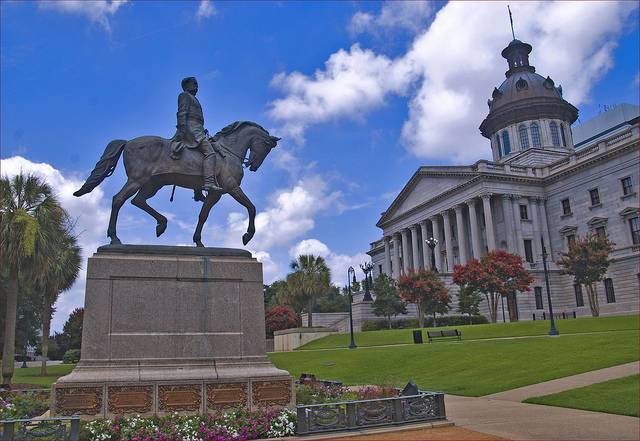South Carolina’s Capital Comes Closer to 100% Renewable Energy
Steve Benjamin, the mayor of Columbia, South Carolina became a co chair for the Sierra Club’s Mayors for 100% Clean Energy Plan.
Benjamin’s addition to the growing set of mayors who claim they’ll change their communities to completely renewable energy is basically symbolic: to date, town government hasn’t released a target date or approach by which Columbia will forget fossil fuels and only clean technologies. And the Democratic mayor’s location is also the deeply red state’s main city.
South Carolina’s legislature has passed some weather-friendly expenses recently, but it didn’t always move rapidly around the usage of a clear-energy plan. Incentives for buying renewables in Sc are scarcer than in other U.S. states.
Nevertheless, Benjamin and his area of 132,000 are producing an essential point. At any given time once the federal government looks poised to abandon its role as being a worldwide leader on climate action, the stark reality is that locations usually takes the lead-in mitigating climate hazards by running clean-energy technologies. As well as in this, Columbia joins a group of towns as varied as Grand Rapids and Atlanta, San Diego, Michigan, that say they’re interested in performing their component while modernizing their economies to stall climate change.
Benjamin outlined a number of the actions that Columbia has taken up to include more renewables in its regional grid, in a recent meeting with the the smart cities website CityLab.
South Carolina’s solar energy project had been met with excitement by Columbia residents. Currently, the city’s organizations and people have installed enough solar energy potential to generate 8.2 million kilowatt hours of energy, which Benjamin claims will be the equivalent of nixing 13 million car miles.
Other small changes include a commitment to transforming the vast majority of the city’s traffic lights to LEDs working Columbia’s town council meetings on completely renewables, and encouraging 60 percent of all city vehicles with propane rather than diesel. Benjamin also credits local NGOs, including Sustainable Midlands, with increasing awareness about renewables and their environmental and economic benefits.
Some of Columbia’s press for climate resilience stems from recent experience. In addition to much of South Carolina, the town, has experienced its share of climate- related problems and natural catastrophes, dating even before Hurricane Hugo in 1989. The October 2015 excessive rain that hit Columbia, which Benjamin described as a “1,000-year flood event, caused vast amounts of dollars in damages and ” killed 19 people. That flood alone, by some records, was the sixth such 1,000-year flood going to the U.S. since 2010.
In the long run, mayors like Benjamin are in the driver’s chair to guide on the growth of a low-carbon economy now that the federal government is struggling and unwilling to bring that torch. “Cities are America’s only wish now when it comes to climate action,” Johanna Partin of the Carbonneutral Cities Alliance (CNCA) published in-Time magazine shortly after the November election.
To that conclusion, CNCA has produced the event of the funds locations could take back for infrastructure and public transportation programs if they did not need to spend so a lot of their finances on fossil fuels.
As in much of the world, cities are creating the great majority of U.S. GDP. McKinsey estimated that amount at 85 percent this season; 90 percent was cited by Benjamin. Thus, towns currently, inside your, can make the economic argument for investing in renewables, as today’s clear-energy field is commonly reported to become a larger company than yesterday’s fossil fuels industry.
The times of cities pursuing manufacturing jobs is finished, as they are being displaced by offshoring or automation; but energy jobs cannot be outsourced, making this switch both a straightforward economic and environmental debate.
